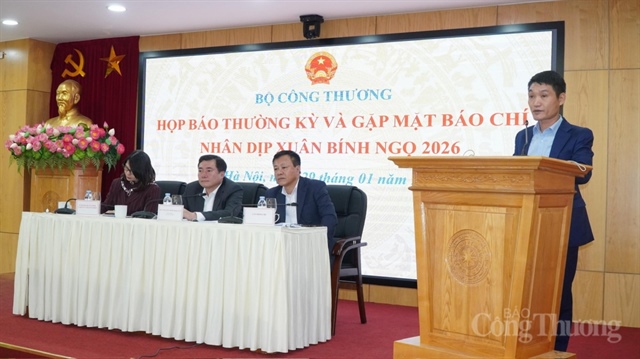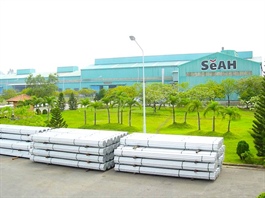Measures sought to boost export of dragon fruit to India, Pakistan
Measures sought to boost export of dragon fruit to India, Pakistan
A business networking conference was organised virtually on Thursday to seek ways to boost the export of dragon fruit to India and Pakistan amid difficulties due to the impacts of the COVID-19 pandemic. 
Dragon fruit ranks first in terms of competitive advantage among 11 fruits and is often in the group of products earning billions of US dollar from exports.
This year it is due to be harvested with an estimated output of 1.45 million tonnes, up 10 per cent year-on-year.
For provinces like Binh Thuan the output is expected to reach 650,000 tonnes this year, while for Long An it is estimated at 330,000 tonnes.
Vu Ba Phu, Director of the Viet Nam Trade Promotion Agency under the Ministry of Industry and Trade, expressed his hope that through this conference, businesses and localities will have the opportunity to learn more about the demands and requirements of Indian and Pakistani markets.
Businesses and localities can discuss the potential and strengths of Vietnamese dragon fruit products, and connected with importers in South Asia to boost sales in the future, he added.
Vietnamese Ambassador to India Pham Sanh Chau confirmed that the Vietnamese diplomatic agency and the trade office in India always did their best to connect Vietnamese exporters with the Indian market.
In the past five years, the value of Vietnamese dragon fruit exports to India has surged, from 26 per cent in 2015 to 52 per cent in 2020, Chau said, adding that this shows that India has a huge demand for this fruit.
The Vietnamese Embassy in India is willing to support domestic enterprises in the promotion and sale of fresh and processed dragon fruit products, he confirmed.
As Viet Nam has yet to export dragon fruit to Pakistan, Vietnamese Ambassador Nguyen Tien Phong suggested businesses learn about consumption habits to approach the market appropriately.
Bui Trung Thuong, Counselor, Viet Nam Trade Office in India, recommended that in addition to fresh fruit, Vietnamese businesses could make other products from dragon fruit. These would have stricter requirements but be more sustainable.
Sharing his experience exporting dragon fruits to the Indian market, Huynh Thuy Vy, Member of the Executive Committee of the Vietnamese Association in India, also noted that businesses must pay attention to payment methods and give priority to the 30 per cent deposit payment method when signing contracts. After receiving and inspecting the goods, the remaining 70 per cent will be paid to avoid disputes and risks. In addition, enterprises should pay attention to the quality of exported goods and improve packaging designs.




























